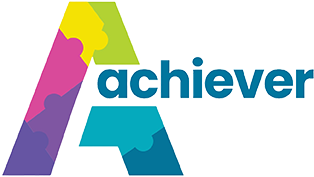

Applied behavior analysis focuses on the principles that explain how learning takes place. Positive reinforcement is one such principle. When a behavior is followed by some sort of reward, the behavior is more likely to be repeated. Through decades of research, the field of behavior analysis has developed many techniques for increasing useful behaviors and reducing those that may cause harm or interfere with learning.
Applied behavior analysis (ABA) is the use of these techniques and principles to bring about meaningful and positive change in behavior. These techniques can be used in structured situations such as a classroom lesson as well as in “everyday” situations such as family dinnertime or the neighborhood playground. Some ABA therapy sessions involve one-on-one interaction between the behavior analyst and the participant. Group instruction can likewise prove useful.
ABA is widely recognized as a safe and effective treatment for autism. It has been endorsed by a number of state and federal agencies, including the U.S. Surgeon General and the New York State Department of Health. Over the last decade, the nation has seen a particularly dramatic increase in the use of Applied behavior analysis to help persons with autism live happy and productive lives. In particular, ABA principles and techniques can foster basic skills such as looking, listening and imitating, as well as complex skills such as reading, conversing and understanding another person’s perspective.
Analysis begins with diagnosis. It is important to accurately identify the cause of certain behaviors in order to offer useful remediation. Each child is unique, so a proper diagnosis will allow us to provide the best therapeutic response.
Applied behavior analysis therapy uses psychological techniques that concentrate on certain behaviors. Academic improvements, including reading, will provide children with a better understanding of the world around them. Establishing better communication skills gives a patient the chance to interact with those around them. Providing adaptive learning and social skills is also critical for a patient’s overall well-being.
Applied behavior analysis as a therapy can be used to improve many of the lifestyle circumstances that our ASD patients may find challenging. Enhancing fine motor dexterity improves a child’s confidence and ability to function in a variety of settings. Teaching better domestic efficiency can also lead to a more fulfilling lifestyle. Developing treatment plans for grooming and hygiene not only build confidence, it also nurtures greater independence. These treatments promote growth will become critical as your child gets older, ranging from punctual awareness to greater competence on the job.
ABA becomes beneficial in a variety of settings at home or in school. We believe that providing these therapeutic techniques to children also allows them to adapt to other community or job settings as they get older. Improved behavior and skill sets are shown to increase independence that, in turn, decreases the dependence on special services.
Research has shown that ABA is an effective science that addresses some of the following concerns:
+ Destructive Self-Injurious Behaviors
+ Social Skills And Pragmatic Language
+ Toilet Training And Personal Care Skills
+ Language Speech Acquisition
+ Academic Concepts
+ Self-Stimulatory Behaviors
+ Peer and Sibling Relationships
+ Self-Management Skills
Our goal at Achievement Therapy Services is to work with children with Autism Spectrum Disorder in order to improve their quality of life. Many years of research have been dedicated to ABA, and hundreds of studies specific to autism have shown that this therapy is effective. Children who participate in ABA programs demonstrate greater progress than those who are in programs using other methods.
This form of therapy is designed to increase behaviors that promote well-being while decreasing behaviors that interfere with communication and learning. By working one-on-one with your child, our therapists can create achievable goals that are built on their needs and priorities. A child’s behavior holds a varying degree of social significance to them, and this therapy can help to identify the importance of each one. The proper intervention will help to develop a greater independence for the patient.
Psychological therapy examines behavior to look for established patterns as well as what environmental factors may be influencing them. Not only do we look at the pattern, we also attempt to discover what happens before and after the event. This allows us to develop strategies that deal directly with the behavior itself.
The key to our approach is identifying why a behavior happens in the first place. Functional Behavior Assessment allows our therapists to understand what your child is receiving from a particular behavior. This data is used to develop a treatment plan that addresses a child’s individual needs.
An effective plan includes using the things that motivate a child to improve learning. Discovering what they enjoy and have fun with can increase learning ability. Finding healthy motivation will make learning more productive.
This form of therapy will help to establish cues that a child can use to better understand positive responses. Prompting them with visual support or gestures provides them with a hint for proper responses. Over time, these prompts are slowly removed to encourage the healthy response independently.
Positive reinforcement is also a key component in any therapy. Children with Autism Spectrum Disorder often have limited interests, so it is important to encourage positive behaviors instead of negative responses. Our patients are taught what is expected of them in a multitude of situations through encouragement.
Even the simplest tasks can involve many steps to complete. Those with ASD often need each of these steps to be identified and taught to them. Identifying a baseline for a task and slowly adding steps to it will allow a child to eventually gain independence with that task.
Complete and systematic instruction is an important component of this therapy. Discrete Trial Instruction and Natural Environment Training are used to develop responses that can be applied to a variety of situations. When they are used together, children can learn to adapt their skills beyond the scope of what they have learned.
By combining all of the techniques described above, our therapists are able to create an effective treatment plan by identifying and modifying problematic behaviors. Our certified staff approaches each patient’s case individually in order to create the best possible learning conditions. Applying the correct learning systems allows your child to gain positive results without confusing or frustrating them. Continuing this therapy offers a positive solution with long-term results, and provides the learned skills your child will need now as well as in their adult lives.
Research over the last 40+ years has shown the efficacy of ABA Therapy for individuals diagnosed with Autism Spectrum Disorder.






Everyone from this company has been amazing and friendly. Ariella, Esti helped me navigate expertly and gave a compassionate human touch. Been to 4 companies over the years and I only can genuinely recommend this one. Thank you!
M
Google
We have had a wonderful experience working with ABC. Our son is well-supported and his technician shows such care and compassion for him even through his most challenging moments & days. Our BCBA Stefanie has been a wealther of knowledge and support as well. She has helpd with the school, preparing us with progres reports, strategies and suggestions as well as data for our doctors vists. We have seen progress against goals and an increas in confidence in our son. We are so glad that we found ABC!
Parent
We have been working with ABC for over 3 years for our son on the Autism Spectrum. He has been making many strides and we are very happy with their services. Our BCBA Stefanie is phenomenal and we couldn't be happier with how they have helped our son.
Parent
I want to take the time to thank you guys for all your hard work. I know your job isn't easy but I want you to know that your hard work is paying off. My son is doing things he's never done before interested in potty believe it or not he grabs my hand and takes me to the bathroom so he can sit although he doesn't do anything but he takes me. He eats oranges and strawberries that was unheard of a few months ago he sometimes eats with a spoon even if it's for a few seconds that was unheard of he's more attentive omg the list goes on. I just wanted to take the time to say ty and I have the best therapist in the world.
Parent
A huge thank you for finding me the BEST two ABA therapist. Sophia and Grace are true rock stars and walking angels. Their skills combined with kindness and patience of a saint have truly helped Sophie progress. Sophie, me and her dad, are truly grateful for all of you!
Parent
A big thank you to Esti Perl, Intake coordinator, for helping us navigate the insurance information. We were never provided by other agencies all our options. We were struggling to find Full-Time employment and pay for ABA therapy caused us tremendous stress. Esti has helped us save so much money, and we received the very best ABA therapist.
Parent












Above are some of insurances we accept.
If you don’t see your insurance please contact us to help you get authorized.
+ Nassau County & 5 Towns | 516.229.1194
+ Edison, New Jersey | 475.325.0276
+ Forest Hills, Queens | 347.342.1406
+ West Hempstead | 516.229.1194
+ Malverne, New York | 516.229.1194
+ Danbury, Connecticut
+ Chadds Ford, Pennsylvania
Mon - Fri 9AM - 5PM
Follow Us
Boutique agency since 2015
Achievement Behavior Services is a boutique agency providing quality individualized applied behavior analysis (ABA) therapy to children on the autism spectrum. Established in 2015 ABS is licensed and trained ABA therapists implement behavioral therapy methods in the child’s environment to improve social, behavioral and adaptive skills.
+ In-home aba services
+ Parent Training
+ Initial Assessment
+ BCBA Supervision
+ Social Skills Groups
+ BIP (Behavior Intervention Plans)
+ School Consultations
+ CE Credits
+ Direct Care
+ Family Training
+ 5 Boroughs | Staten Island, Brooklyn, Queens, Manhattan, The Bronx
+ Westchester | Yonkers
+ Rockland County | Monsey
+ Long Island | Nassau County & Suffolk County
+ New Jersey | Bergen County, Union County, Hudson County, Essex County, North Jersey, Central & Southern Jersey
+ Corporate Office | Malverne, NY
